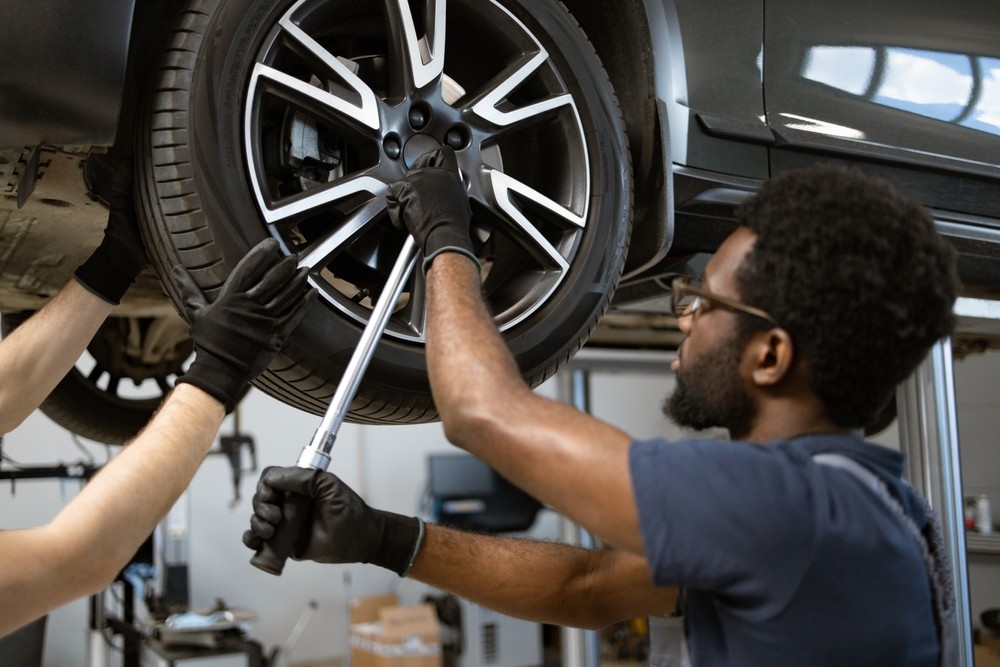Every vehicle owner at some point faces the temptation to skip routine car maintenance. Life gets hectic; priorities shift; time feels too short, and the temptation to save a few dollars today can be alluring. However, overlooking scheduled car maintenance might initially seem like a minor cost-saving measure but could lead to significant long-term expenses and inconveniences.
The Hidden Costs of Deferred Maintenance
Skipping routine maintenance might save some cash upfront, but it often leads to more severe problems that require costly repairs. Imagine the distress of your car breaking down unexpectedly. Such situations aren’t just inconvenient; they often result in expensive corrective measures that could have been avoided.
1. Engine Trouble
The engine is the heart of your vehicle, and routine maintenance helps ensure it functions correctly. Regular oil changes, part of any maintenance schedule, keep engine components lubricated, preventing friction and the subsequent wear and tear that can lead to overheating or engine failure. Ignoring oil changes might save money in the short run, but neglecting this critical service can result in repair costs that dwarf the price of frequent oil changes. Engine repairs or replacements can easily run into thousands of dollars, far outweighing regular maintenance costs.
2. Transmission Issues
Similar to engine care, maintaining the transmission is vital for your car’s health. Routine checks and fluid replacements help ensure that your transmission operates smoothly. Ignoring these can lead to gear slippage, difficulty in shifting gears, and could eventually lead to a full transmission replacement, which is not only expensive but also time-consuming.
3. Tire Wear and Alignment Problems
Under-inflated tires lead to decreased fuel efficiency and heightened risk of blowouts, while misaligned wheels can cause uneven tire wear that shortens tire lifespan. Addressing these issues requires regular tire rotations, air pressure checks, and wheel alignments. Left unchecked, new tires and potentially new rims can lead to substantial costs.
4. Brake System Failures
Brakes are vital for safety. Routine checkups can detect worn-out brake pads or compromised brake lines before they escalate into severe issues that can cause accidents or require costly brake system overhauls.
5. Cooling System Breakdown
Your car’s cooling system regulates engine temperature and prevents overheating. Regular checks ensure that coolant levels are adequate and that there are no leaks or faulty components. Ignored, these can lead to substantial engine damage, necessitating expensive repairs or replacements.
Impact on Car Longevity and Value
Skipping routine maintenance can significantly impact the lifespan of your vehicle. Beyond the immediate repair costs incurred by neglect, your car’s longevity diminishes when small issues aren’t promptly addressed. Vehicles that do not receive regular maintenance often see a 25% reduction in projected lifespan.
1. Depreciation and Resale Value
A well-maintained vehicle retains its value far better than one with a spotty maintenance history. Regular maintenance decidedly improves resale value, as prospective buyers value a history of timely care. Selling or trading a car that has been poorly maintained typically yields offers that are considerably lower than market value.
2. Long-Term Reliability
Poor maintenance records not only affect resale value but can also impact future reliability. Vehicles known for their resilience and long-term performance, when properly maintained, become prone to breakdowns if routine service is neglected. This can lead to frustration and excessive unplanned expenses which could have been minimized with regular servicing.
Fuel Efficiency and Environmental Impact
Maintenance neglect has adverse effects on fuel efficiency. Regular maintenance tasks like filter replacements, spark plug changes, and fuel system cleaning contribute to optimal fuel consumption. Here’s how routine care can save both money and the environment.
1. Increased Fuel Costs
Improperly inflated tires, clogged air filters, and faulty oxygen sensors can lead to decreased fuel efficiency. Over time, poor maintenance can lower a car’s fuel mileage by as much as 10-20%. This may translate into hundreds of extra dollars spent over a year, money that could have been conserved by staying up to date with maintenance.
2. Environmental Consequences
Vehicles with poor maintenance emit more pollutants than those routinely serviced. Emissions from inefficient engines, faulty exhaust systems, and poor fuel systems not only pose regulatory issues in areas with strict environmental standards but also contribute significantly to air pollution.
Safety Risks
Beyond financial and environmental considerations, there’s personal safety that hinges on a well-maintained vehicle. Cars that aren’t regularly checked can conceal dangerous issues, leading to decreased safety on the road.
- Reliability of Safety Features: Many modern vehicles come equipped with safety features such as anti-lock brakes, electronic stability controls, and airbag systems. Routine maintenance helps ensure these features are always in optimal working condition.
- Preventing Accidents: Worn-out brake pads, unresponsive steering, and poor tire conditions are not just costly but dangerous. Routine care can preemptively catch these issues, reducing the risk of accidents.
- Staying Safe in a Breakdown: Routine car care helps minimize breakdown situations, especially in potentially hazardous environments or weather conditions, and ensures your vehicle is road-ready.
Time is Money
The notion that skipping routine maintenance saves time often backfires. The time saved by avoiding regular services is quickly eclipsed by the hassle, time loss, and stress of addressing major repairs or breakdowns.
1. Inconvenience and Downtime
An unexpected car breakdown isn’t just costly; it’s inconvenient. It may disrupt daily routines, leading to missed work or significant schedule disruptions, often requiring alternative transportation arrangements that can add up in costs and inconvenience.
2. Emergency Repairs
Emergency repairs are almost always more time-consuming than routine maintenance checks and more expensive. The unplanned nature means finding available slots at the repair shop, which, depending on severity, could sideline the vehicle for days.
Understanding these elements makes it clear: diligent routine maintenance is far less costly than dealing with the fallout from neglect. In both financial terms and the quality of car ownership experience, there’s substantial advantage in staying ahead on vehicle care. While it might be tempting to defer these responsibilities, the mindset of short-term savings often leads to long-term costs.
The cost of routine car maintenance should be viewed not as an expense, but as an investment in your vehicle’s longevity, your own safety, and financial savvy. Investing in routine maintenance pays dividends in avoided breakdowns, sustained fuel efficiency, and maintaining your car’s resale value. These efforts transform into a more reliable vehicle, a safer driving experience, and a more secure financial outlook.



